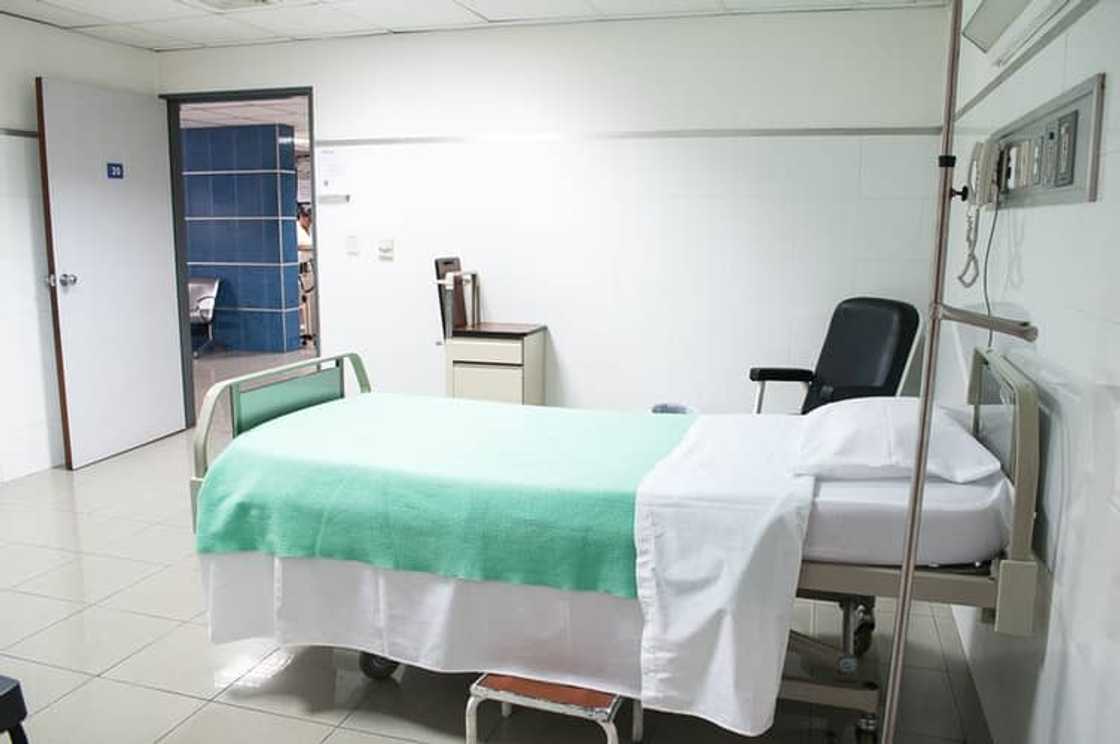How does sick leave work in South Africa 2022? Full guide
With a few exceptions, most illnesses usually come without any warning signs, and they may strike at the time when we expect the least. If you are an employee in South Africa and have found yourself in such a situation, you do not need to die in silence for fear of losing your job or pay. The best thing to do in such a case is to understand your rights, privileges as well as your obligation to the employer as stipulated in the country’s labor and employment laws. Below are some of the things you need to know about sick leave South Africa.

Source: UGC
Generally, sick leave comes in handy for several purposes.
- For an individual's medical needs i.e. childbirth, injury, mental or physical illness, etc
- Family care i.e. attending to a sick child
- Bereavement purposes
However, some of the above purposes may only apply depending on the specific country's employment act or a company's sick leave policy.
Sick leave policy South Africa
How does sick leave cycle work? Section 22(1) to 22(4) of South Africa’s Employment Act stipulates that during each 36-month cycle starting from the first day at work, an employee is entitled to a paid sick leave. And this should be equivalent to the exact number of days that they usually work in a typical 6-week period.
This, therefore, means that in case the employee works five days per week, then they are entitled to a 30-day sick leave on full pay. On the other hand, if the person works six days per week, then they will have a 36-day sick leave on full pay. When distributed across the three years, one may have a 10 to 12-days paid sick leave per year on average.
However, during the first six months of employment, one is only entitled to a one-day paid sick leave in every 26 days that they will have worked. Note that any sick leave days that are taken during this period usually are deducted from the 36-month entitlement. If a person uses up all his/her sick leave either at the beginning or in the course of a cycle, then they will not have any sick leave available to them for the remaining period, and any further requirement will just be treated as unpaid leave.
Proof of illness

Source: UGC
Even though the employee is entitled to the stated rights and privileges while they are sick, one cannot benefit from the same based on fabricated stories or outright lies. There needs to be enough proof that the person was ill and hence incapable of carrying out their duties. For instance, based on section 23 of the employment act governing the labour law sick leave, the employer is not mandated to pay the employee if he/she has not been present at work for more than two different occasions on eight weeks or more than two days consecutively without proof of sickness or injury.
Ideally, the employee needs to produce a medical certificate that has been signed by a registered medical practitioner who is certified to diagnose as well as treat patients. However, in case it is not reasonable for the employee that is living in his/her employer's premise to obtain such a certificate, then the basic conditions of employment act sick leave stipulate that the employer should not withhold their rightful payment. The only exception to this would be if the employer provided reasonable assistance to the employee to enable them to obtain the medical certificate.
How is the payment for the sick leave calculated?
It is important to note that a person's payment for the sick leave is usually calculated at the salary or wage rate that the employer offers. To convert the monthly payment into the daily rate, the employer will take your monthly gross income before any deductions are made and then divide it by 4.3. This will give the weekly rate, which is then divided by five to find the day rate. In case one wants to arrive at the hourly rate, they can divide the number of hours that the employee usually works in a single day.
Application of the sick leave
The basic conditions of the employment act usually apply to all workers and employers except for;
a) Members of the National Defense Force
b) Members of the National Intelligence Agency
c) Members of South African Secret Service
d) Unpaid volunteers who are working for a charity
The section of this act that regulates the working hours does not usually apply to;
a) Workers who are in senior management
b) The sales staff members who travel a lot and regulate working hours by themselves
c) Those workers who work for less than 24 hours within a month
d) Workers who earn more than the amount stated in section 6 (3) of this Act
Other people that are excluded from some of the provisions of this act are those workers that are engaged in emergency work and those that usually receive compensation for occupational injury or disease.
Incapacity terminations

Source: UGC
Cases of employment termination because of ill health incapacity are relatively fewer in South Africa. The incapacity that is brought about by poor work attendance or even mediocre performance because of ill health can be defined as the inability or failure of a worker or employee to carry out their assigned tasks or job up to the expected standards. In such a case, the sick leave policy allows the employee to either apply for the ill-health retirement or ill-health incapacity. If they have taken the ill-health retirement option, the employee may need to contribute to their Personal Health Insurance through their pension fund.
Furthermore, the basic conditions of employment act leave require the employer to ensure that comprehensive medical assessments are done before dismissing their employee on the grounds of incapacity or their failure to meet the work performance standards. Otherwise, any judgment that is made by such an employer would be seen as unobjective and one that is not inspired by reason.
Even though it may seem to be time-consuming, resource-intensive and sometimes complex, effective management of issues concerning illness, disability, absenteeism, non-attendance and negative presence is very critical. If not addressed adequately, these issues can bring about constant tussles between the employer and employee, which can create a hostile work environment.
However, by the employer and employee understanding the provisions of the employment act covering all aspects of sick leave South Africa, many of these issues can be resolved with ease. Understanding the sick leave policy will enable you to know your rights, privileges, and obligations as an employer or employee.
Note: If a person is found to have coronavirus, at least 14 days of sick leave are needed for quarantine. More information about sick leave for Covid-19 patients can be found on the official government website.
DISCLAIMER: This article is intended for general informational purposes only and does not address individual circumstances. It is not a substitute for professional advice or help and should not be relied on to make decisions of any kind. Any action you take upon the information presented in this article is strictly at your own risk and responsibility!
Source: Briefly News







